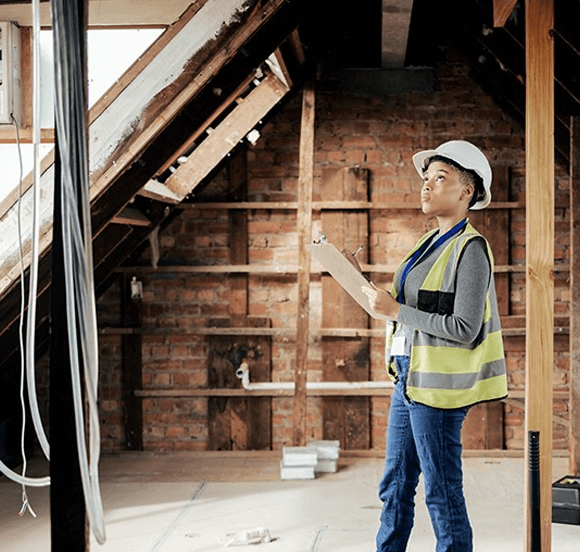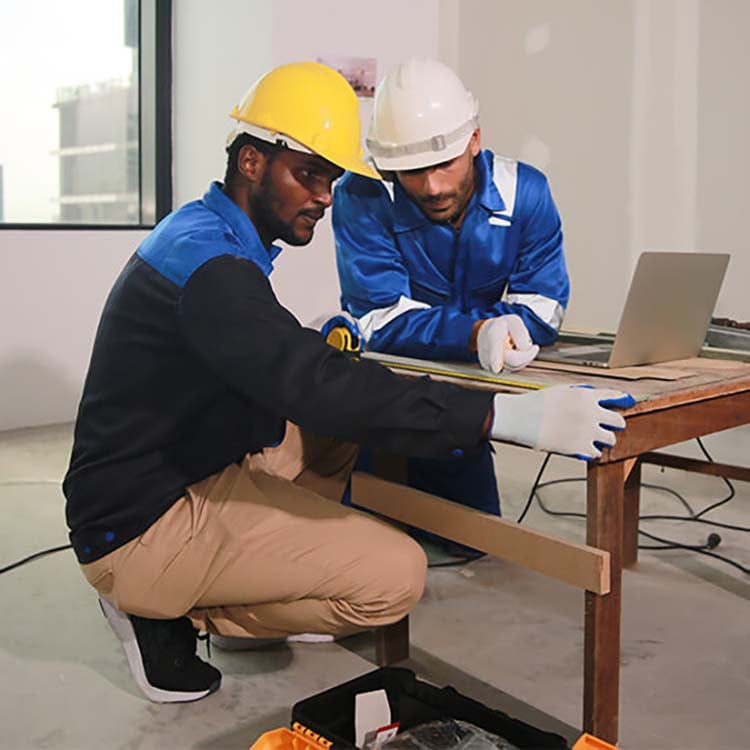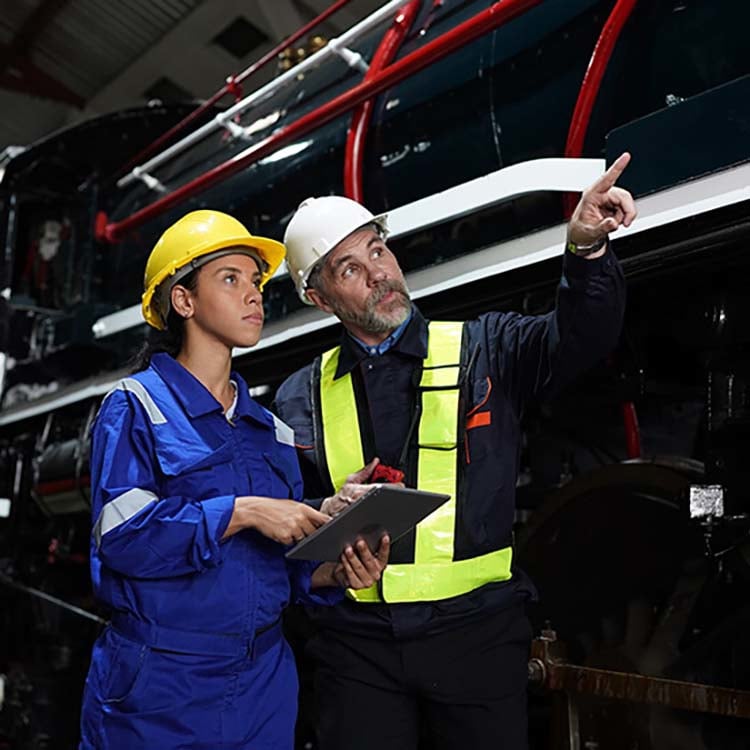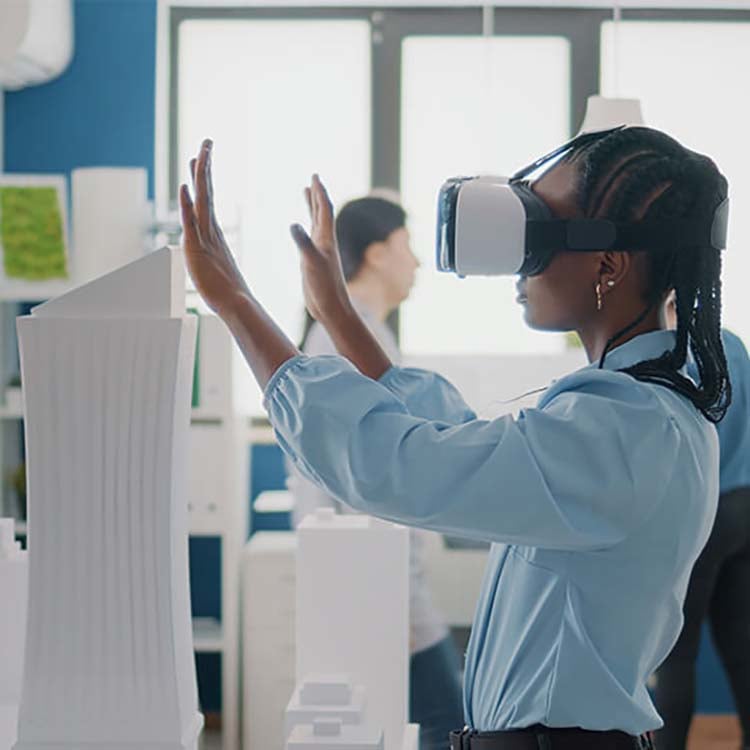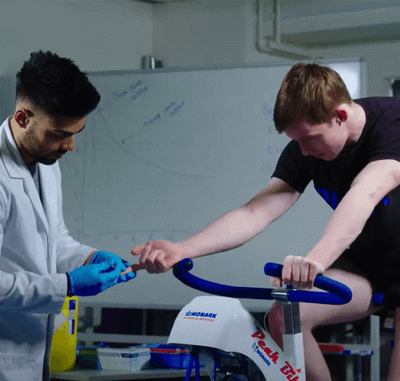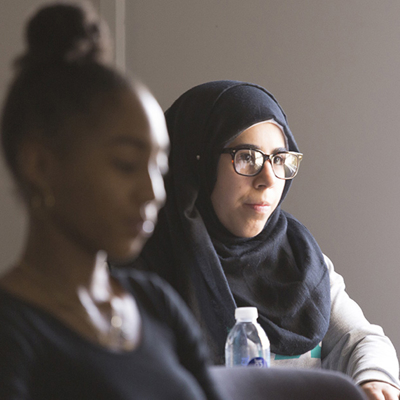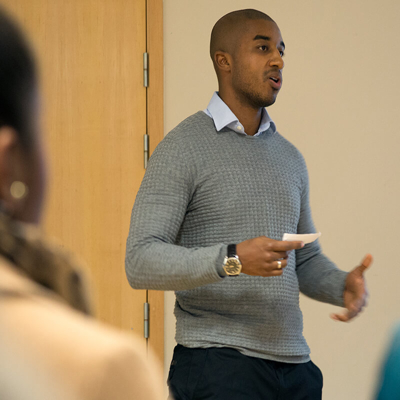/ Undergraduate /
Start date:
September 2024
112 UCAS points (or equivalent)
Foundation Year entry: 64 UCAS points (or equivalent)
UCAS code:
K130
K131 (if choosing a foundation year)

Explore our BSc Architectural Technology, where innovation meets design. Gain in-depth knowledge in building technology, sustainable architecture, and construction systems. Prepare for a dynamic career at the intersection of architecture and construction, shaping the future of sustainable building design.
Did you know?
The relationship between design and technology can be traced back to the industrial revolution where building materials like steel and reinforced concrete sparked the influence of technology in 21st century architecture.
This course is also available with a foundation year (September entry only)
Find out more about our Foundation Year
Foundation Scholarship available (home students enrolling on degrees with foundation years)
Modules
These modules are those we currently offer for 1 year (full-time).
- Architectural Design 1: In this module you will learn standard architectural graphic conventions, structuring the drawings, techniques used in production of architectural drawings, the relationship between representations in plan, elevation and section. The students will be given a project brief with the details of the development site, which will include a low rise domestic or commercial building.
- Construction Science, Materials and Environment: Here you will be introduced to the composition and properties of materials used in buildings and structures. This module covers a few areas: common engineering materials used in construction, laboratory measurement of physical properties of materials, and science of the building in relation to its performance.
- Construction Technology 1: This module covers different technological concepts used to enable the construction of building elements, from substructure to completion with a focus on low rise domestic buildings and simple industrial and commercial buildings.
- Interdisciplinary Design Project 1: You will begin to develop skills in design through a series of tasks where you will have to come up with a range of options to solve a design problem. The student will get introduced to the ways that professionals work collaboratively in design.
- Introduction to the Built Environment, Professional skills, and Context: Here you will be introduced to important roles carried out by professionals to create the built environment. The students will learn about the typical professional activities, professional code of conduct and explain how these integrate with all stakeholders, processes and practices in the built environment industry.
These modules are those we currently offer for 1 year (full-time).
- Architectural Design 2: In this module you will develop and justify methods and techniques to prepare detailed design proposals of high-rise commercial buildings. The students apply a problem-solving approach to translate concept design into technical details.
- Construction Technology 2: Here you will continue learning about the technology of high-rise frame construction and new methods of construction. Students will develop a deeper understanding of contemporary construction technology principles in complex buildings including basements.
- Interdisciplinary Design Project 2: For this project you will present your design appropriately using hand-drawn sketches, computer generated graphics, computer aided drawings, physical models, calculations, specifications, and bills of materials/ quantity. Students will be developing their knowledge of CAE in context and its value in terms of optimisation and parametric design.
- Procurement and Contract Law: This module encourages students to adopt a problem-solving approach towards aspects of procurement strategies and contract management. You will justify your solutions by reference to professional principles and practice that are current within the industry.
- Professional Practice and Digital Applications: This module aims to support students in future career and employability by encouraging them to demonstrate their digital and professional skills and to develop an understanding of the key considerations required to develop and support their practice, continued study and career aspirations.
This course offers all students the option of a one-year paid work placement, to boost your employability even further. If you choose this route, you will take the placement following year two of your course, and then return to complete your degree.
Why take a placement?
A placement year is the perfect opportunity to gain valuable work experience, to build on the career skills we will teach you on this degree. The connections you make on the placement will improve your career prospects further, and equip you with the skills you need to secure graduate-level employment.
How we support you
The University's Placement and Work Experience Team are experts at helping you to secure a placement. They will work closely with you from the start, helping you research potential employers, discover placement opportunities, create and pitch your CV, and will coach you to perform well in interviews. We aren't able to guarantee a placement, but our sector-leading advisors will give you the best possible chance of securing one.
Find out more about how we'll support you
We understand that your plans might change once you start your programme. If you decide not to do a placement, you will have the option of completing the three year version of your programme.
Whatever your choice, you will have access to many opportunities for work experience through our Placement and Work Experience Team, and access to face-to-face and 24/7 online careers support.
These modules are those we currently offer for 1 year (full-time).
- Sustainable and Emerging Technologies: Here you will develop knowledge and understanding of how sustainable and emerging technologies are transforming the design, production and management processes of buildings. This is important to ensure that these buildings are energy efficient, resilient
to climate change and contributing to UN sustainable development goals. Students will explore and evaluate options for sustainable design and production technologies and management for future buildings. - Construction Project Management: The module covers theories and concepts of project management in construction. Construction projects are complex and provide challenges in managing resources mainly people, plants and materials, specialist subcontractors effectively. Students are introduced to contemporary principles, concepts, processes, tools and methodologies used to complete construction projects successfully.
- Research Methods and Dissertation: Here students have an opportunity to independently choose and research a topic in the built environment and take responsibility for managing time, identifying objectives and following a systematic approach to solve/ explore a problem and production of a dissertation.
- Interdisciplinary Design Project 3: The project will require researching the background of a site, and developments in construction practices and techniques.
This course is offered as a degree with foundation year – a four-year programme which provides an additional foundation year at the beginning of the degree, that will give you academic and practical experience, as well as the skills you need to ensure you are equipped to successfully complete your chosen degree.
£2,000 Foundation Scholarships for all home students
Find out more about our degrees with a foundation year
Foundation programme delivered by the School of Continuing Education. The exact modules for our foundation programme are currently in development. For more information, please contact us.

Skills
Study a degree that combines creative and innovative design with construction and technology, and develop the skills to succeed in the construction industry.
- From technical design to the realisation of building and construction, learn to turn innovative plans into sustainable buildings.
- Designed to meet the accreditation standards of the CIAT (Chartered Institute of Architectural Technologists).*
- Collaborate and network with employers through our local industry connections.
Through our collaboration with professional bodies, local industry, and government, you’ll study a degree that is industry relevant. You will graduate with the skills required by the sector and the ability to develop as it changes.
Learning
Teaching reflects the way Architectural Technologists work in the real world, so you graduate career ready.
- Learn alongside other sustainable engineering and technology students just like you will as a professional.
- Project-based learning will give you the practical experience of working as an Architectural Technologist.
- Formal and interactive lectures and workshops to ensure you graduate with the technical expertise you need.
Sustainability is central to Architectural Technology and will be embedded in everything you learn, with a particular emphasis on good health and well-being, clean water and sanitation, affordable and clean energy, and sustainable cities, and communities.
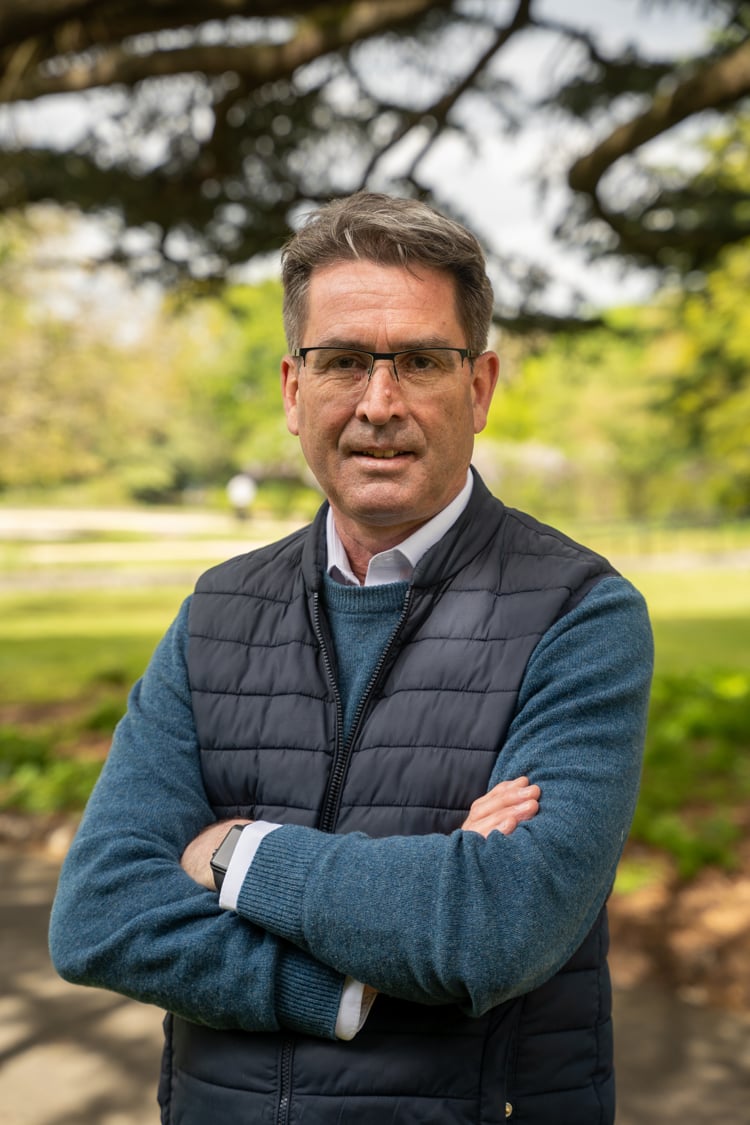
Professor Stephen Pretlove
Hello, I am Stephen Pretlove, Director of Sustainable Engineering, and I have been at Roehampton since July 2023. I have an educational background in construction, engineering, architecture and environmental design, and I have worked as an academic for over 30 years in a number of large built environment departments across the UK.
My role at Roehampton is to lead on the development of our new sustainable engineering and technology centre, and to establish and deliver a suite of innovative engineering and built environment programmes, focusing on sustainability, green skills, and meeting the zero carbon targets set by the UK government.
My research focuses on sustainability in the built environment, and the need to take a holistic approach to how buildings are designed, how they are constructed, and how they are occupied. Failure in any of these areas results in buildings that are not sustainable and much of my work involves Post Occupancy Evaluation (POE) of buildings, particularly social housing, to evaluate how a building performs in relation to the design intentions.
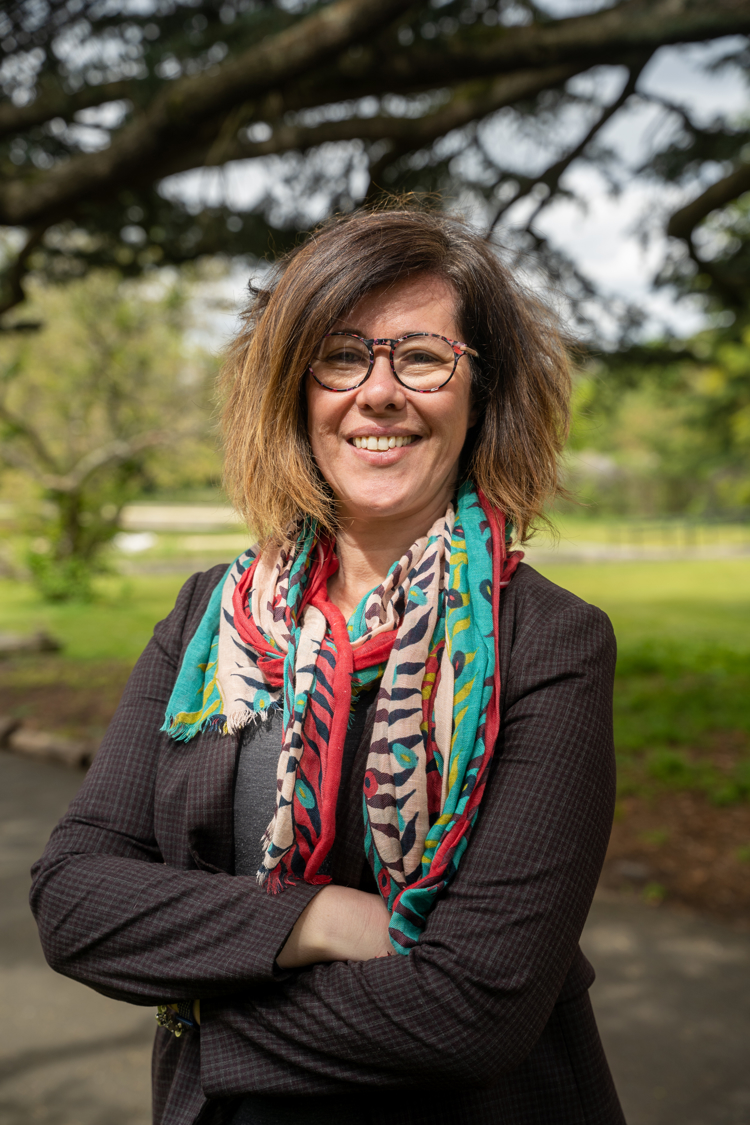
Lilian Martins da Silva
Senior Lecturer in Architectural Technology.

Well-being Pawfficer
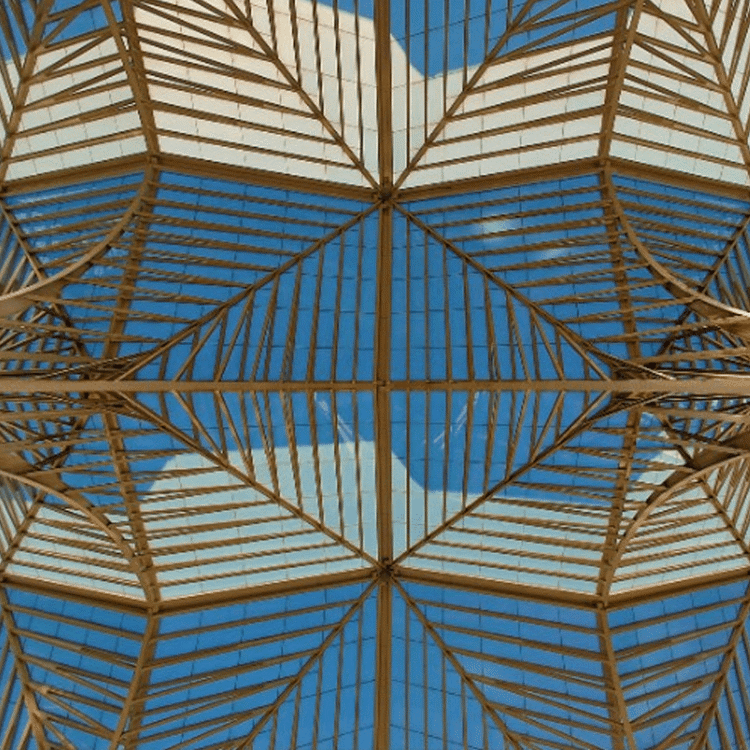
Assessment
You’ll be set authentic assessments, meaning that your projects, tasks and exercises will replicate the working world of Architectural Technology.
This could include:
- Technical reports
- Lab reports
- Essays and presentations
Between Years 2 and 3, you can also opt for a professional placement year, meaning you have the opportunity to apply for a placement and gain valuable real-world experience.
Careers
Internationally, nationally and regionally, there are a host of opportunities for you as a graduate.
There is a significant demand in many architecture practices to employ architectural technologists to lead on the technical, environmental and legislative elements of building design. Many Architectural Technologists also choose to set up their own practice.
You could also specialise in Computer Aided Design (CAD), building simulation, environmental and ecological consultancy services, Virtual and Augmented Reality, visualisation, digital scanning and digital fabrication, project and construction management, and Design & Build services.

Open days
Get a real taste of our campus, community and what it’s like to study at Roehampton
Applying
Full-time UK undergraduate students apply through UCAS.
Entry tariff
112 UCAS points (or equivalent)
Foundation Year entry: 64 UCAS points (or equivalent)
We welcome applications from students studying T Levels.
For all courses we also accept a wide range of other qualifications and experience. Contact us to find out more.
When we consider applications to study with us, we form a complete view of your achievements to date, and future potential, and can offer flexibility in entry requirements. Find out more about our Contextual Offer scheme.
Specific entry requirements
GCSE requirement: Maths and English, Grade 4/C.
September 2024 entry tuition fees
UK: £9,250
Placement year: £998
We offer a wide range of scholarships and bursaries. See our 2024 financial support pages for UK students.
We also provide other ways to support the cost of living, including free buses and on-campus car parking, hardship support and some of the most affordable student accommodation and catering in London. Find out more about how we can support you.
International undergraduate students apply through our direct application system.
Entry tariff
We welcome applications from students studying T Levels.
For all courses we also accept a wide range of other qualifications and experience. Contact us to find out more.
When we consider applications to study with us, we form a complete view of your achievements to date, and future potential, and can offer flexibility in entry requirements. Find out more about our Contextual Offer scheme.
General entry requirements
September 2024 entry tuition fees
Year one fees
EU and International: £15,750
Placement year: £998
We offer a wide range of scholarships and bursaries. See our 2024 financial support pages for international students.
We also provide other ways to support the cost of living, including free buses and on-campus car parking, hardship support and some of the most affordable student accommodation and catering in London. Find out more about how we can support you.
£3,000 scholarship for all overseas paying students
For the September 2024 entry, we are offering a scholarship of £3,000 for all overseas fee-paying students applying for one of the new Engineering and Technology Undergraduate courses listed:
- Architectural Technology
- Civil Engineering
- Construction Management
The scholarship will be awarded for year 1 of study only.
This award can be combined with other Roehampton scholarships or discounts in year 1 of study, up to a maximum of £4,000.
If you are eligible for two scholarships or discounts, the value awarded will be capped at £4,000 for year 1. Any scholarship amounts awarded in year 2 or 3 of study will be unaffected.
*Available to students from outside the UK who have overseas fee status.These scholarships are only available to current students at the University of Roehampton.
We reserve the right to adjust the value, volume and eligibility criteria of our scholarship and bursary programmes.
All scholarships offered by Roehampton are awarded based on you completing the year of study for which they are granted. If you withdraw or interrupt your studies during the course of an academic year, you will only be entitled to the proportion of scholarship that relates to the period that you have completed, and will become liable for any tuition fee shortfall as a result.


